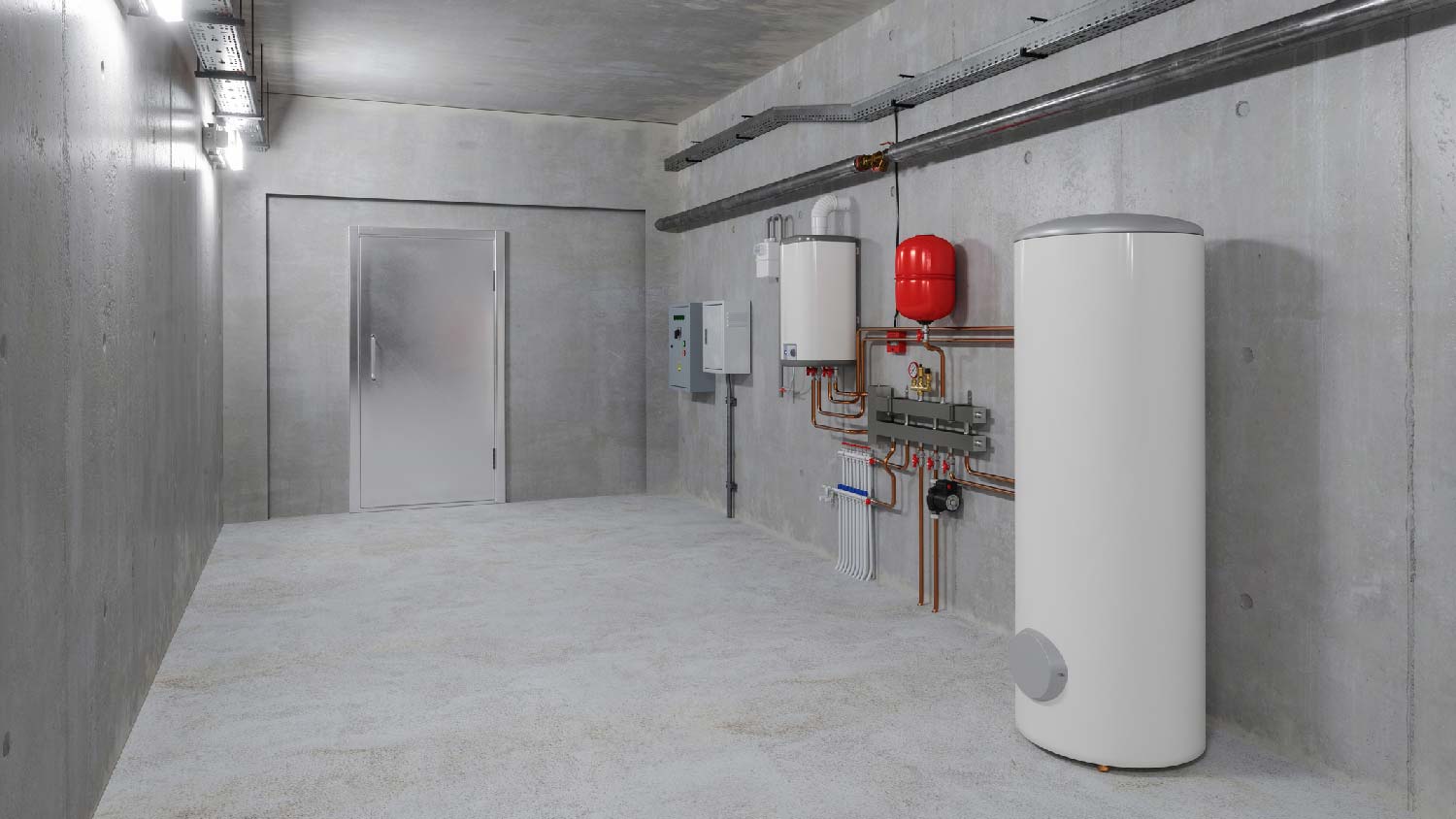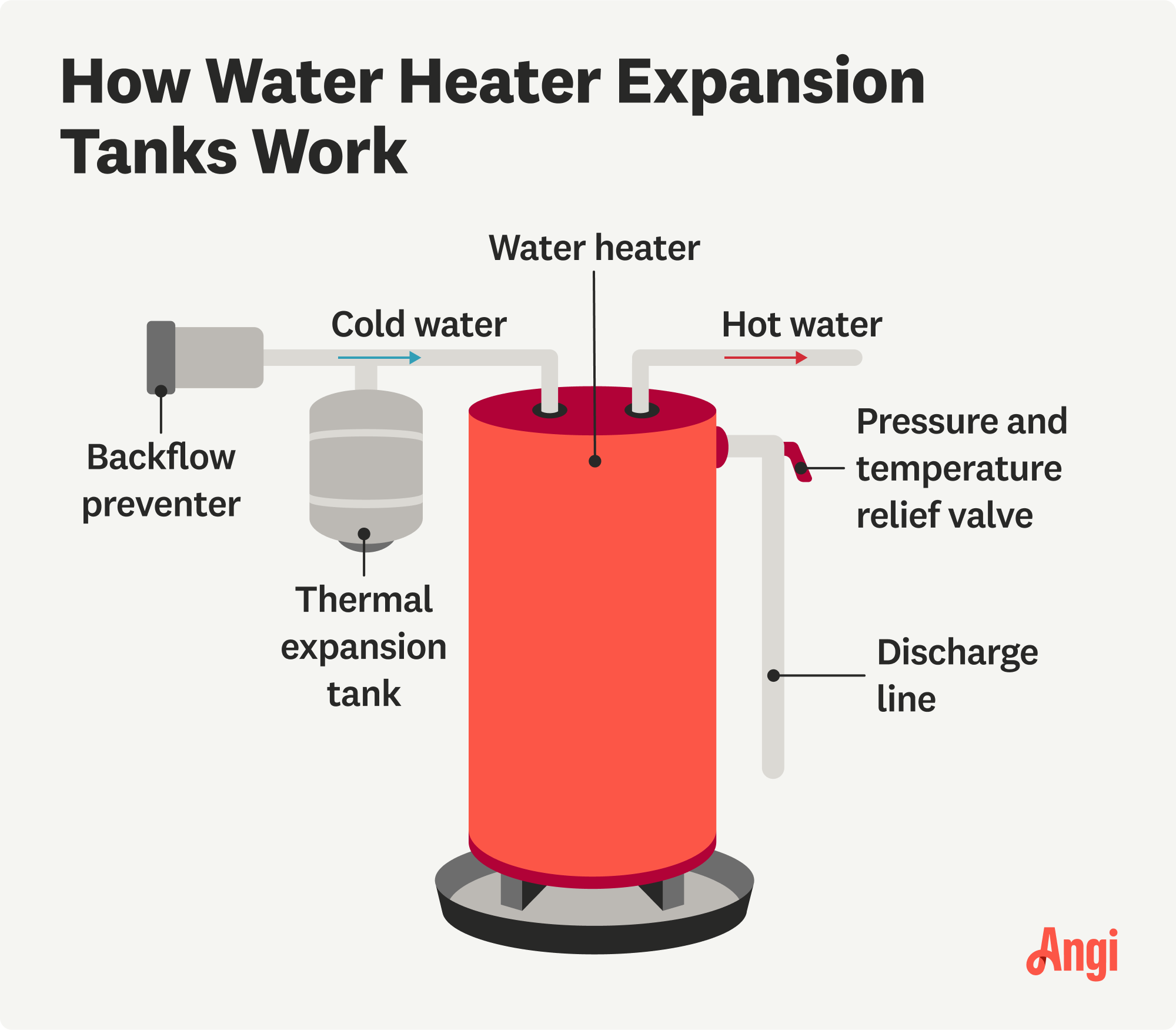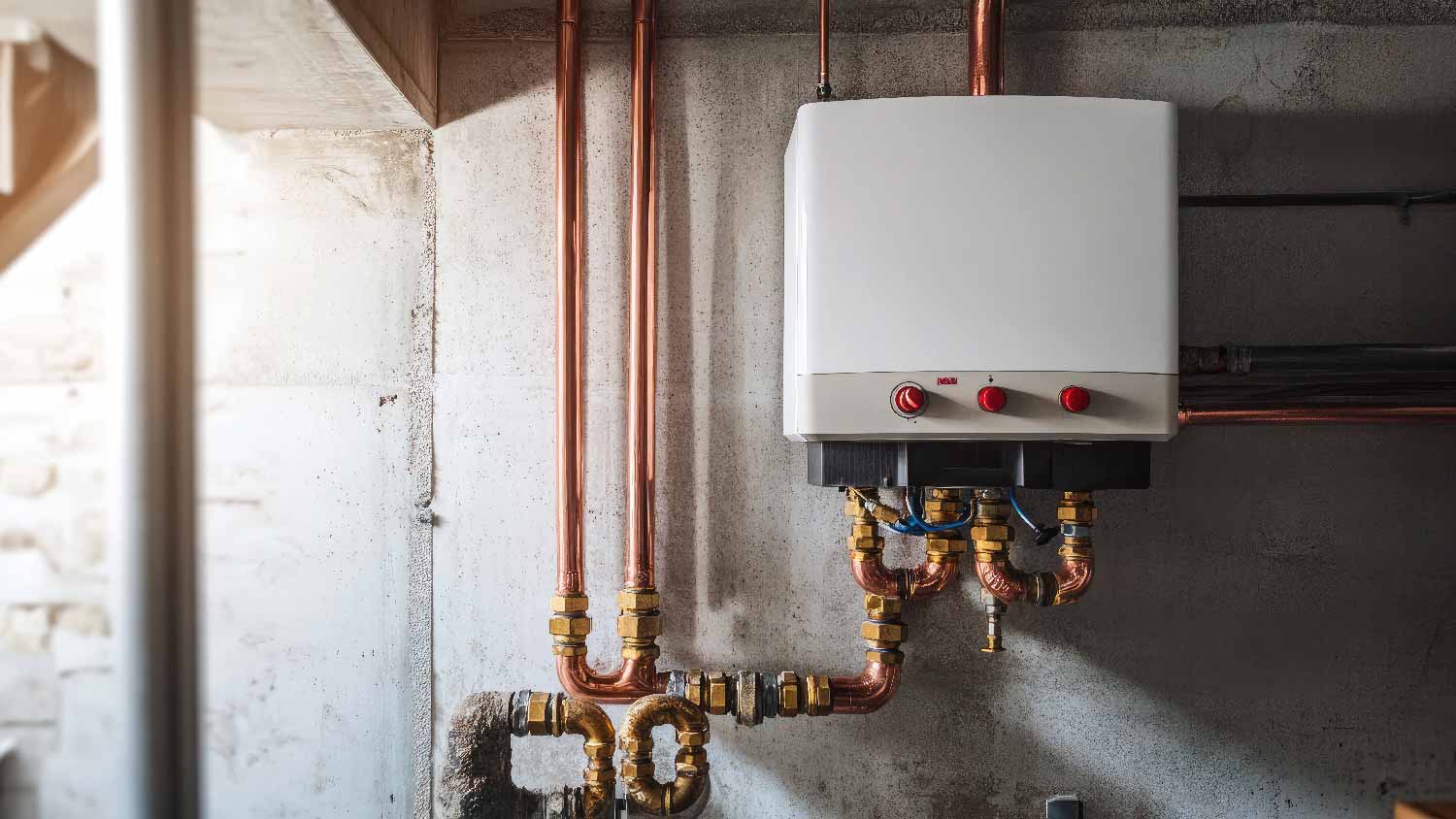
Learn all the factors that influence the cost to install a heat pump water heater at your home.
You might be under pressure without this addition to your water heater


Water heater expansion tanks cost around $350 to install.
Expansion tanks protect your water heater from rupturing.
Most municipalities require expansion tanks in residential homes.
Almost all homes have water heaters, but you may not know what a water heater expansion tank is. When water is heated in a tank, it expands and creates pressure on the water heater. An expansion tank relieves some of that pressure by taking water from the heater during the heating phase. You may wonder: Do I need a hot water heater expansion tank? In most residential properties, an expansion tank is now a requirement.

Home plumbing has changed quite a bit over time. Previously, many homes had an open system, meaning the plumbing could recycle water back to the city’s water supply. In such a case, overflow was unlikely. Now houses have closed systems.
Because the system can’t discharge into municipal pipes, pressure builds more quickly, requiring pressure relief systems. For this reason, expansion tanks are now required in almost all residential areas. A local water heater installation pro can help you determine which expansion tank you need.

There are several advantages to expansion tanks. A few of them are:
Not expensive to install or replace.
They last as long or longer than the water heater itself.
Adds a layer of security for your home, preventing future damage.
Have the possibility to lower insurance premiums if not previously installed.
Prevent leaks and ruptures of the water tank.
Keeping current with building codes.
Water heater expansion tanks cost between $150 and $450 with a national average of $325. The cost of installing an expansion tank depends on the size of the tank, its type, and your geographic location. The size of the expansion tank is determined by the heater size and the water pressure (psi). Corresponding sizes are:
| Heater Size (gal) | Water Pressure (psi) | Expansion Size (gal) |
|---|---|---|
| 40–60 | 40–50 | 2 |
| 40–60 | 60–80 | 3.2 |
| 80 | 40 | 2 |
| 80 | 50–60 | 3.2 |
| 80 | 80 | 4.4 |
From average costs to expert advice, get all the answers you need to get your job done.

Learn all the factors that influence the cost to install a heat pump water heater at your home.

Wondering how much a water heater expansion tank costs? Use this cost guide to get an accurate estimate and learn how to choose the right one for your home.

A water heater flush costs $160 on average but can vary based on the unit size, type, labor, location, and more. Keep reading to learn how much you could pay.

Learning how to change the temperature on your water heater takes just a few minutes and the help of a screwdriver. Find out how easy it really is in this guide.

The right water heater wire size keeps your home safe and your water hot. Learn how to choose which size your household needs.

Is your water heater not heating? Don't put up with cold showers Find out what's going on and how to fix it.